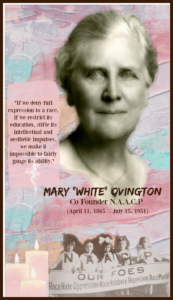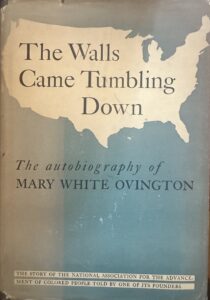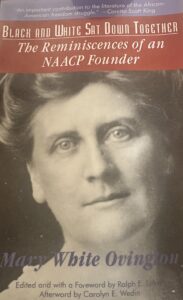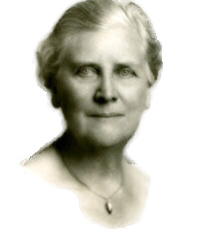
Original Post 3/9/18 8:03 am
“Mary White Ovington could have lived a life of comfort. Born into privilege, she could have conformed to the prejudices of her time. Instead, she chose to stand on the frontlines of history—fighting for justice alongside W.E.B. Du Bois and other Black leaders. Without her, the NAACP might not exist as we know it today.”

The Making of an Activist
Mary White Ovington (April 11, 1865 – July 15, 1951) was a suffragette, socialist, journalist, and co-founder of the NAACP. Raised in Brooklyn by Unitarian parents who were staunch abolitionists and women’s rights advocates, Ovington’s life was shaped by the values of justice and equality.
Her journey into civil rights began in 1890 when she heard Frederick Douglass speak in a Brooklyn church. Inspired by his words, she devoted herself to fighting racial injustice.
The Springfield Race Riot & the Birth of the NAACP
In 1908, Ovington came across an article titled “Race War in the North” by William English Walling. The article detailed the Springfield Race Riot, where white mobs targeted Black communities in Abraham Lincoln’s hometown—leaving seven dead and dozens of homes and businesses destroyed.
Realizing that Black Americans needed a powerful interracial organization to fight racial violence and discrimination, she met with Walling and Dr. Henry Moskowitz in New York. Together, they issued a call for action that led to the founding of the National Association for the Advancement of Colored People (NAACP) in 1909.
Mary White Ovington’s Leadership in the NAACP
Unlike many white allies of her time, Ovington didn’t just support the movement—she helped build it. She served as the NAACP’s executive secretary and later as its chair, working closely with Black leaders like W.E.B. Du Bois, Ida B. Wells, and James Weldon Johnson.
Through her books, articles, and public advocacy, she championed civil rights, women’s suffrage, and the labor movement. Her 1911 book, Half a Man: The Status of the Negro in New York, challenged the nation’s racial inequalities.
Legacy: Why Mary White Ovington’s Story Matters Today
Mary White Ovington wasn’t just a historical figure—her work remains relevant today. She understood that Black progress was tied to national progress and that the fight for justice required both Black and white allies working together.
She once wrote:
“If we deny full expression to a race, if we restrict its education, stifle its intellectual and aesthetic impulses, we make it impossible to fairly gauge its ability.”
As discussions about allyship, racial justice, and history’s erasure continue in 2024, Ovington’s bold stance against racism and her role in co-founding the NAACP should be remembered and celebrated.
Call to Action
💬 Did you know about Mary White Ovington’s role in founding the NAACP? What are your thoughts on allyship today? Drop a comment below!
📖 For further research:
The Walls Come Tumbling Down (Mary White Ovington, 1947)

(Mary White Ovington, republished 1996)

- Half a Man: The Status of the Negro in New York (Mary White Ovington, 1911)
- Listen to the Episode Featuring Mrs. Ovington [The Last Historian Episode 1 part 1]
Must Watch:






